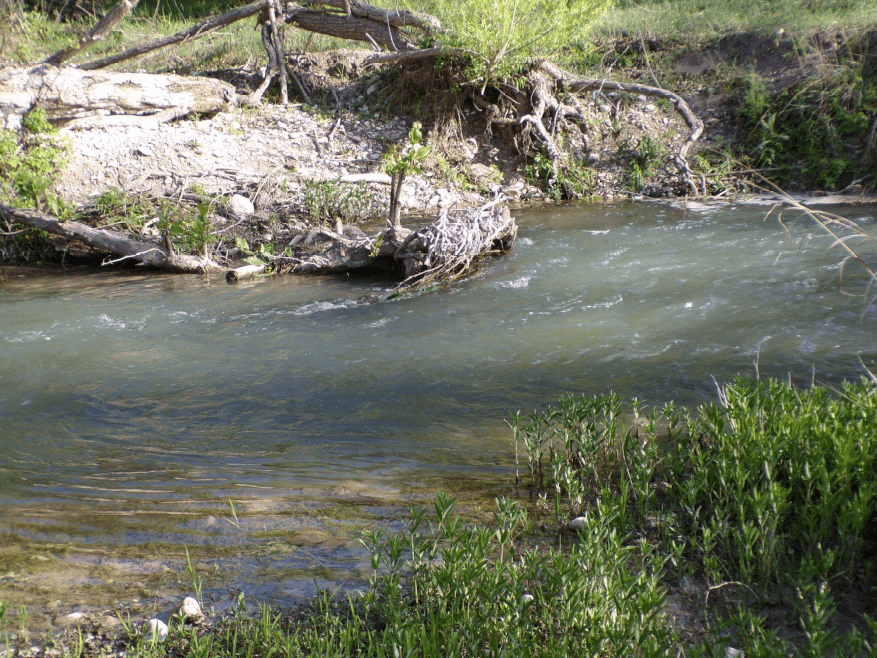
Most love stories from history are tragic. I’m not sure why this is, maybe because our ancestors were less inclined to pretty up tales of loss and tragedy. It could be that tragic stories simply were recorded more often because they make good food for thought. Whatever the reason, in honor of Valentine’s Day, here is another to add to the stacks of star-crossed lovers that make up half of Shakespeare’s work, many artistic depictions and the majority of myths and legends from every culture in the world–a story of true love without the happy ending.
Cattleman John Sheen was a son of English immigrants who, along with his family, were early settlers in Brown County. Sheen told this story about how his friend Jim Sewell secured himself a wife. The story was published in the Historical and Biographical Record of the Cattle Industry and the Cattlemen of Texas by James Cox. “When I found myself the possessor of 800 head of cattle, in 1868, I began to think that I had reached man’s estate, and my friend Jim and myself commenced visiting some young ladies who lived near Old Camp Colorado, 100 miles north of my father’s place in Menard County,” Sheen said.
Camp Colorado was a military outpost located in what is now Coleman County. It was the supply center for early pioneers, as well as the social hub of the West Texas frontier. According to Sheen’s account, there were no settlements between Menard and Camp Colorado at that time. Travelers between the two points were subject to constant harassment and attack by nearby Comanche, thus he and his friend Jim journeyed together to the outpost where they were both courting girls.
“Jim had been paying his suit to Miss Sarah Gussett, a daughter of Captain Gussett, and his attentions had not been very well received by the old man, so after returning from one of these pleasant but perplexing trips to Jim, he announced to me that he was either going to make Sarah his wife or discontinue his visits, and he asked me if it became necessary to steal his bride from her parents, to accompany him and assist in the flight, as he anticipated trouble from the Indians more than from the ladies’ father and brothers. I agreed to lend what aid I could, providing he could not get the consent of Captain Gussett and his wife, but I would much prefer the latter, of course, as the family thought a great deal of me and I did not wish to incur their displeasure, but was determined to stand by my friend. Captain Gussett told Jim in very plain terms that he could not have Sarah, and Jim, knowing the disposition of the father, said nothing, but came back where I was stationed with my horse, and announced that there was only one course left and that was to elope,” Sheen said.
Sheen staked his horse along Hords Creek to await the runaway couple. Around midnight, Jim and Sarah met up with Sheen. They made for the San Saba River, about 80 miles south. Sheen got wet along the way, and the party had to stop so he could thaw out his freezing clothes.
“We hobbled our horses so they could feed, set fire to a pile of drift-wood, and while we were waiting for my clothes to dry, we heard owls screeching in every direction. I said to Jim that I believed we were surrounded by Indians who had been attracted by our fire. He did not agree with me, but in order to satisfy myself, I went out where our horses were grazing and saw three Indians riding in the direction of the fire, I slipped back and told Jim what I had seen, and we, leaving the young lady under the second bank by a big elm tree, started out to reconnoiter. Jim believed it was Captain Gussett and Jack, his son, who had followed us with the intention of taking Sarah back.”
It was not Sarah’s enraged relatives, however, but a party of Comanche. The two men hurried back to where they had left the girl, who, when apprised of the situation, responded, “I’m glad it isn’t papa.” I imagine Captain Gussett must have been one formidable man, if his daughter preferred a Comanche attack to dealing with him. After a tussle and the loss of one of their horses, our brave lovers and their escort rode on, eventually reaching the San Saba near Menard where Jim and Sarah were married. Only a few years later, however, Jim was killed by a Comanche lance on Bear Creek in Kimble County.
The story ends there. We would never have found out what happened to Sarah, except for the internet. Sarah and James had two children in the two years they were married, and Sarah went on to marry a John Thorpe. She died in Potter County, Texas, at the age of 81. Like many heroines of history, Sarah Sewell gave up everything, her home, her family’s respect and approval, for the sake of true love, only to find herself without it after all, at least for a time. Was it worth it? Love guarantees suffering, sooner or later, but I agree with the poet Alfred Lord Tennyson when he famously wrote, in spite of the grief love can bring, “Tis better to have loved and lost, than never to have loved at all.”
***
Diane Adams is a local journalist whose columns appear Thursdays on BrownwoodNews.com
